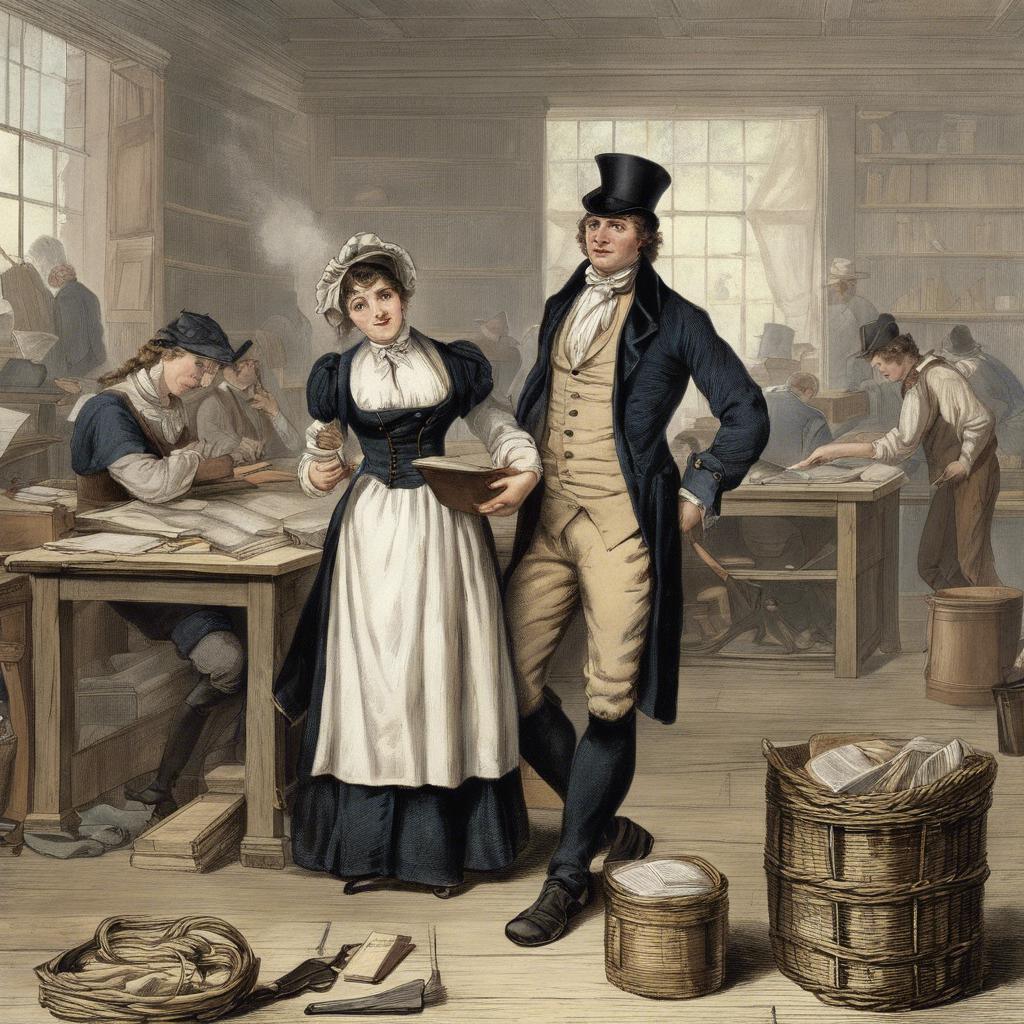During the Regency era in Britain, a period spanning from 1811 to 1820, the landscape of employment underwent significant transformation. The industrial revolution brought about new opportunities and challenges, leading to the emergence of a diverse range of occupations. In this article, we will delve into the various jobs that defined the Regency era, shedding light on the social and economic dynamics of the time. From the elegant world of domestic service to the gritty realm of factory work, join us as we explore the intricacies of employment during this pivotal period in history.
Step Into the World of Cheryl Bolen
Dive into the enchanting stories of love, intrigue, and elegance set in the Regency Era. Cheryl Bolen's novels offer timeless romance and captivating tales that will leave you wanting more.
Explore Cheryl Bolen's Books Now
Types of Jobs in Regency Era England
The Regency Era in England brought about a variety of different job opportunities for individuals looking to earn a living. Here are some of the types of jobs that were common during this time:
Domestic Service: Many men and women worked as domestic servants in the households of the wealthy and aristocratic. Jobs such as butler, maid, cook, and footman were prevalent during this period.
Tradesmen: Tradesmen such as blacksmiths, carpenters, and tailors were essential for providing goods and services to the community. These skilled workers were highly valued for their craftsmanship.
Government Positions: In Regency Era England, government positions were often obtained through connections and wealth. Jobs such as Member of Parliament, government clerk, and tax collector were sought after by those looking to climb the social ladder.
Characteristics of Common Occupations
In the Regency era, there were several common occupations that were prevalent in society. These occupations often defined individuals’ social standing and livelihood. Some of the most common jobs during this period included:
- Servants: Many households employed a large number of servants to cater to their needs. This included butlers, footmen, maids, and cooks, among others.
- Shopkeepers: Shopkeepers played a vital role in society, providing goods and services to the community. They could own a variety of shops, such as apothecaries, tailors, and milliners.
- Army Officers: Military service was highly esteemed during the Regency era. Army officers were respected members of society who dedicated their lives to serving their country.
| Occupation | Average Salary |
| Servants | Low wages, room, and board |
| Shopkeepers | Varied depending on the type of shop |
| Army Officers | Decent salary with potential for promotions |
Each occupation had its own set of characteristics and responsibilities. While servants worked long hours and often lived in their employer’s homes, shopkeepers had more flexibility and independence in running their businesses. Army officers, on the other hand, were expected to uphold the honor and integrity of the military through their service and leadership.
Skills and Qualifications Needed for Regency Era Jobs
In order to excel in the various jobs available during the Regency Era, individuals must possess a unique set of skills and qualifications. These positions require a blend of traditional values, refined etiquette, and specialized knowledge. Whether working as a governess, a valet, or a lady’s companion, certain attributes are essential for success.
Skills and Qualifications Needed:
- Proficiency in classical languages such as Latin and Greek
- Knowledge of proper etiquette and social decorum
- Strong organizational skills and attention to detail
- Ability to adapt to changing environments and handle unforeseen circumstances gracefully
Furthermore, individuals seeking employment during this era must be well-versed in the arts, literature, and music of the time. A keen understanding of fashion, current events, and politics is also highly valued. Above all, those seeking to thrive in Regency Era jobs must possess a sense of loyalty, discretion, and a willingness to serve their employers with unwavering dedication.
Tips for Finding Employment in the Regency Era
During the Regency Era, finding employment was crucial for individuals looking to support themselves and their families. Here are some tips to help you navigate the job market in this historical time period:
1. Networking: In the Regency Era, networking was essential for finding employment. Attend social events, engage in conversations with influential people, and make connections that could lead to job opportunities.
2. Consider Different Types of Jobs: In the Regency Era, there were various types of jobs available, including domestic service, trade professions, and roles in the military. Consider exploring different options to find a job that suits your skills and interests.
To Wrap It Up
the Regency Era offered a variety of unique and challenging employment opportunities for individuals of all social classes. From the skilled tradesmen to the domestic servants, each job played a crucial role in maintaining the functioning of society. The importance placed on work ethic and societal hierarchies during this period shaped the labor force of the time. As we reflect on the diverse array of occupations in the Regency Era, we gain a deeper understanding of the economic, social, and cultural dynamics that defined this fascinating period in history. Let us continue to appreciate the contributions of those who labored diligently to shape the world we inhabit today.


